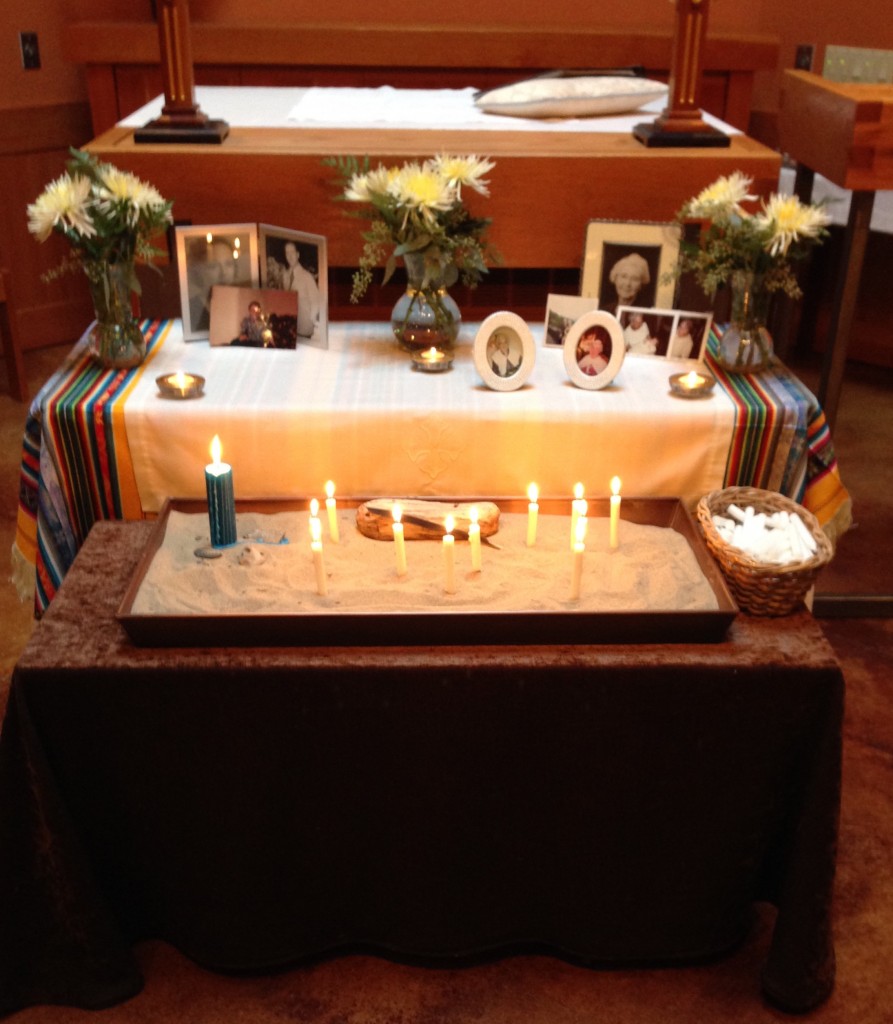Our reading in Matthew is a difficult one. It seems important, though, to remember that the Parable of the Weeds is exactly that–a parable, not a prediction. Parables are allegorical teaching tools for teaching moral or spiritual lessons. As the years roll by, the meaning of allegory morphs and shifts–so it’s important to remember Jesus is saying “this is like…” when he teaches in parables. Even when he speaks of “the end of the age,” he’s still using the metaphor of the furnace of fire.
Yet as I ponder that reading in the context of All Soul’s Day, I can’t help but remember my late grandmother saying, “Ever notice how, once you die, your reputation improves? You can be a horrible old (expletive deleted) all your life, but all ya gotta do is die and poof! You’re a saint, and nobody ever talks bad about you in polite company ever again!” It’s an interesting topic to explore on All Souls Day, where we commemorate the faithful departed.
On All Souls Day, I often think of late relatives and friends, and yes, I suppose in a sense, their reputation did improve with death. It becomes more and more difficult as the years roll by to be upset or angry at the things that they used to do or the ways they used to behave that drove me straight up the wall, or deeply hurt me. I also think of the departed I never met–celebrities or people in the news, where I held intense opinions of whether their actions were right or wrong–and I didn’t even know those people.
I have to confess there are still a few departed that I still bear some grudges or animosity. In my defense, I do work on those ones from time to time. But in my growing awareness of my own human condition, I can see that I am no different from anyone else–as long as I am in human form, I will always be part seed, part weed. So were those other people. We can only live in hope that their weeds were burned off in that process of moving from this realm to the one where light shines perpetual, and when we join them, we will see each other for the seeds we all are–without the weeds.
So, today, perhaps this parable is a reminder of each of our part seed, part weed human nature, more than an exhortation to fear that we would somehow slip up and not be “good enough.” It seems more useful to use it for self-examination and reflection on what needs to change in our own lives, and to let go of some of the weeds of other people’s lives that choke out the sunshine that we need to nurture our own seeds, in the hope of the restoration of God’s realm.
When you recall the departed in your life today, what weeds do you simply need to toss in the fire and be done with them? Where were the seeds in that other person you never appreciated until death separated them from us?
Maria Evans, a surgical pathologist from Kirksville, MO, is a grateful member of Trinity Episcopal Church and a postulant to the priesthood in the Episcopal Diocese of Missouri. You can also share her journey on her blog, Chapologist.
Image: photo from St Catherine of Alexandria Episcopal Church, Nehalem OR All Souls Altar by Ann Fontaine

